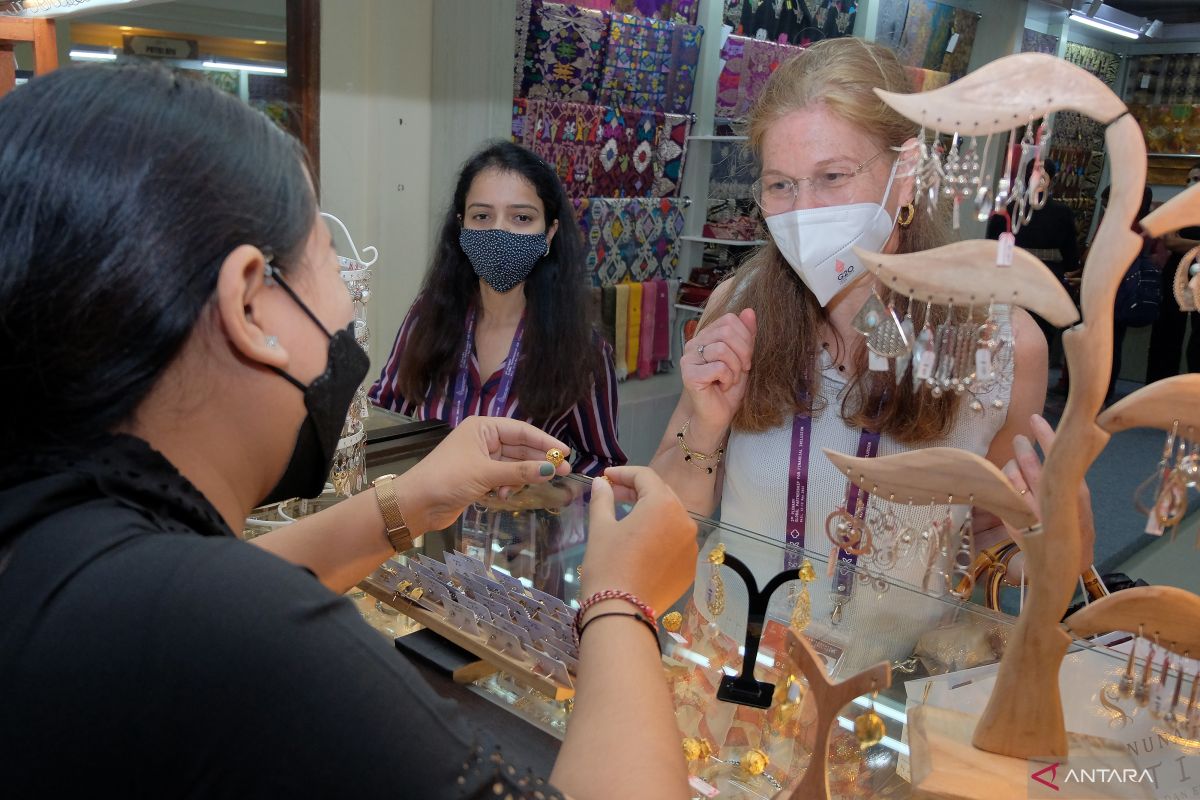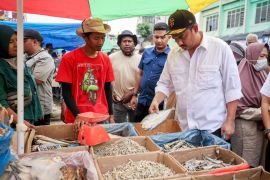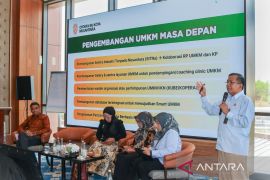MSMEs must be encouraged to use digital platforms to expand their business coverage. Digitalization can help save budget for marketing, reach a wider market, and open up opportunities to develop their productsJakarta (ANTARA) - Digitalization is one of the efforts that can help micro, small, and medium enterprises (MSMEs) to develop and level up, according to associate researcher from the Center for Indonesian Policy Studies (CIPS) Krisna Gupta.
After surviving the difficult phase of the COVID-19 pandemic, MSMEs are expected to utilize digital platforms to expand their businesses.
“MSMEs must be encouraged to use digital platforms to expand their business coverage. Digitalization can help save budget for marketing, reach a wider market, and open up opportunities to develop their products," he noted in a statement here on Thursday.
Related news: B20 WiBAC seeks empowerment of women-led MSMEs
According to Gupta, the COVID-19 pandemic has accelerated digital transformation in Indonesia, including for MSMEs. Activity restrictions policies and changes in the people's consumption patterns have compelled MSMEs to change their business operations by using digital platforms for marketing.
The CIPS research shows that the number of internet users in Indonesia is continually growing with each passing year. Based on data from the Indonesian Internet Service Providers Association (APJII) released in June 2022, the internet penetration rate stood at 77.02 percent, reaching almost 211 million users.
The high rate of internet penetration must be utilized optimally since the pandemic had, indeed, accelerated the digitalization process in all sectors.
Related news: West Java: PNM holds MSME training on business licensing
However, the research showed that low technological knowledge, limited infrastructure, and low skill in technology among members of the workforce still posed obstacles to the digitization of MSMEs.
"The diverse types of MSME also require non-uniform interventions, so that the expected results can be achieved," he added.
The CIPS research recommends the need for a reliable database that is regularly updated to map the many forms of MSMEs in order to provide the proper interventions.
Ministries and government agencies should cooperate with private stakeholders and adopt co-regulation.
Recognizing the various types and needs of MSMEs is essential for optimal and targeted policy interventions. It also needs to be supported by an accurate database.
However, in order to make it effective, Gupta opined that private parties, such as online market providers or business associations, must be involved in policy making and enforcement by applying a co-regulation approach.
He called for public and private stakeholders to complement one another to improve accuracy of the MSME database.
Related news: MSMEs joining digital ecosystem fared better during pandemic: ministry
Related news: Ministry asks MSMEs to optimize digital ecosystem
Translator: Sella Panduarsa, Raka Adji
Editor: Fardah Assegaf
Copyright © ANTARA 2022












